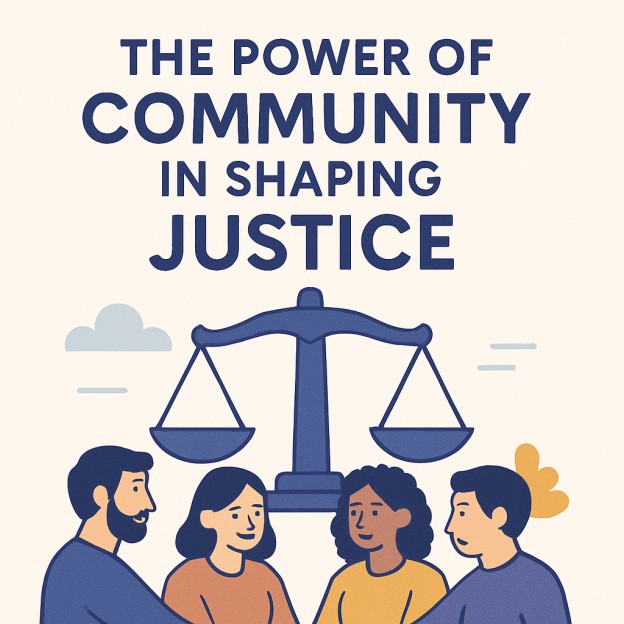The Role of Community in Justice
“The greatness of a community is most accurately measured by the compassionate actions of its members.” — Coretta Scott King
Justice is not built in isolation. While laws and institutions provide structure, it is the people — communities themselves — that give justice its meaning. Systems cannot thrive without the trust, engagement, and voices of those they serve. This is why the role of community is not secondary to justice; it is central.
Justice as a Shared Responsibility
Institutions are often seen as the guardians of justice, but no system can function effectively without community involvement.
When people engage in dialogue, raise concerns, and hold leaders accountable, justice becomes a shared responsibility. Communities act as both participants and overseers, ensuring that fairness is not just promised but practiced.
Giving Voice to the Unheard
Communities amplify the voices of individuals who might otherwise go unnoticed.
By speaking collectively, they highlight inequities, bring attention to overlooked issues, and demand solutions. This collective voice ensures that justice is not skewed toward the powerful but is shaped with the needs of everyone in mind.
Building Trust Through Participation
Trust is a fragile resource in any system of justice. When people feel disconnected or excluded, skepticism grows.
Community involvement builds bridges. Public participation — whether through advocacy, conversation, or local action — strengthens trust between people and institutions. When individuals see that their concerns matter, they are more willing to believe in the fairness of the system.
Driving Change From the Ground Up
Some of the most meaningful reforms in history began not in courtrooms or legislatures, but in communities. Grassroots efforts, local organizing, and civic movements all play powerful roles in shaping justice.
Change driven by communities is unique: it comes from lived experience. It reflects the realities of everyday people and ensures that reforms are grounded in what actually matters on the ground.
Creating a Culture of Accountability
Justice is more than outcomes — it’s also about culture. Communities set expectations for fairness and integrity.
When people openly discuss justice, demand accountability, and model fairness in their own interactions, they create an environment where systems are encouraged to do the same. A culture of accountability at the community level radiates upward.
Conclusion
Justice is strongest when it is not confined to institutions but shared by communities. By engaging, speaking out, and demanding fairness, people play an active role in shaping a just society.
At Frame Journalism, we believe communities are the backbone of accountability. Every voice matters, and every conversation has the power to bring us closer to fairness. Because justice isn’t only about laws — it’s about people, together, ensuring those laws serve everyone.

Leave a Reply